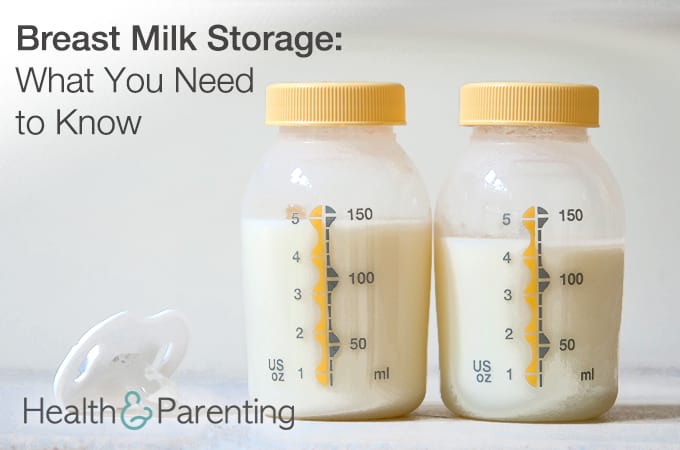Expressing milk is a great way of preparing for the times you can’t be there to feed your baby. Having a backup supply of milk means you can spend the day at work or meet friends for drinks without worrying about what your baby will drink.
Expressing milk is pretty amazing, and will probably make you realise just how precious your milk is. After all, once you’ve invested time and effort in pumping and storing your milk, you really don’t want any of that liquid gold to go to waste.
How to store breast milk
There are a number of different ways to store breast milk, and how you choose to store it affects how long it can be used for. For example:
- if kept at room temperature, freshly expressed breast milk can be used or properly stored within six hours. Ideally, however, you should aim for just four hours.
- if you want to take expressed breast milk out with you for the day, you should keep it in a cooler bag with ice packs.
- if you’re using a fridge, breast milk can be stored for up to five days at the back of a clean fridge. However, using within three days will be best.
- if stored in the freezer, your breast milk will be good for up to six months.
How to use expressed breast milk
If the milk needs to be defrosted first, simply stick it in the fridge until it has thawed. Once thawed, the milk can be used straight away. You should never refreeze milk that has been thawed. Once milk has been thawed for 24 hours, it should be discarded if it hasn’t been used.
Some babies are happy to drink milk straight from the fridge, however others will prefer it to be at body temperature. To do this, simply place the bottle of milk in some lukewarm water so it can warm up a little. Once your baby has started drinking from a bottle of breast milk, it should be finished or thrown away within the hour.
You should never use a microwave to heat up the milk, this can cause the milk to overheat and burn your baby’s mouth.
Written by Fiona (@Fiona_Peacock), mother, writer and lover of all things baby related.
This information is not intended to replace the advice of a trained medical doctor. Health & Parenting Ltd disclaims any liability for the decisions you make based on this information, which is provided to you on a general information basis only and not as a substitute for personalized medical advice. All contents copyright © Health & Parenting Ltd 2016. All rights reserved.










